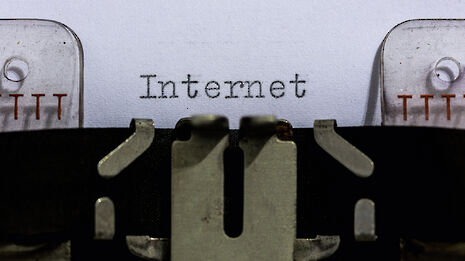Do successful writers need to be internet-famous first?
The internet is a great tool for aspiring writers, but Mariam Ansar argues we need to be wary of its influence

When it comes to contemporary literature these days, 'the written word' is often in fact 'the typed word.' Or the spoken word, documented over YouTube and shared on Tumblr, where fan-people write their fan-fictions about their favourite novels, films and TV shows. Pseudo-meaningful quotations litter our Instagram feeds to the point of suffocation. Within our technologically saturated society, we are so surrounded by the work of writers that we don't notice their presence: it's just the words that stick out in our memory, not the person behind them.
Often these days, that person isn't a world-renowned writer or a household name. Sometimes, it's just a 15-year-old trying their hand at poetry in the comfort of their bedroom, entertaining an invisible audience marked only by the word 'followers'. Sometimes, it's your friend's accidentally-poetic advice in text-form. Sometimes, it's graffiti scrawled on a wall, photographed with an edgy filter for everyone to see.
But the success of that writing is in its effect: it moves you. Who published it isn't important and the grammar may be incorrect, and maybe it won't reach anyone but you, but you remember it. It articulates something inside of you and, like an early-morning dream, just won't leave you alone for the rest of the day. You drop it into conversations and smile when someone understands it the way it understood you. But for the not-so-sentimental, the idea of the successful writer isn't the accidentally poignant. It's the intentionally lucrative- the writers with a publishing house to their name and a promise of a great advance to back up their storytelling. In this paradoxical situation, does the internet enable authentic, meaningful writing, or act only as a tool for conceited money-grabbing?
The world of the internet writer can be a world where fans are already waiting to adore the writing. It's a world where beauty tip experts, erotic fan-fiction writers and vloggers can quickly reach a receptive and hungry audience. But actually what is being marketed is often not the writing itself.
The publication of a book is the publication of the writer's persona, and sometimes, even this identity is elusive: in the shady world of the internet-famous, ghost writers abound. The internet personality and teenage beauty guru Zoella's first novel sold 78,109 copies in its first week, but things turned sour when it was revealed rather euphemistically by Penguin that 'to be factually accurate, you would need to say Zoe Sugg did not write the book 'Girl Online' on her own.' The surface is more important than the substance, the idea of the writer more than the writing itself, and like this the authenticity of both is invalidated. Of course, there is an economic imperative for any writer who wants to make a living from their work. But when it's not their thoughts being penned, when the vocation becomes steadily more immersed in the muddy waters of capitalism and fleeting self-indulgence, I personally question whether I would like to bring my own writing into that mess.
I'm no Luddite. The internet is a many-splendored thing and I'm grateful both for every inspired piece of writing and amusing cat video it has brought me. The speed the internet moves at is exciting, always churning out new information and new ideas, but when good writing requires time and reflection, this can be as much of a curse as a blessing.
In essence, writing is a narcissistic practise. Whether being internet-famous is the only way to make you a successful writer, however, is uncertain. What the Internet can do is give you the courage to test the waters, to send out your first poem or let your Harry Potter fan-fiction be critiqued by faceless anonymous readers. But, once you've established your army of observant YouTube subscribers, it can also give you enough exposure to sit back and pass someone else's words off as your own.
But like everything else, the Internet is multi-faceted, logical considering its scale. It can both enable and prevent the spread of decent writing, but the internet alone does not decide the 'success' of writers. It isn't an omnipotent, external force which operates outside of the wishes of its users. The definition of success is subjective, not machine-determined. I would hope there'd be no singular way to be a successful writer except, well, to write. Being internet-famous can be your calling card. Or it can be your accessory. Or it can be of no significance at all to you. Like the Internet, and like writing itself, the possibilities are vast and what you make of them. And that is the great thing.
 Lifestyle / My third year bucket list17 October 2025
Lifestyle / My third year bucket list17 October 2025 Arts / Why Cambridge’s architecture never lives up to the ‘dark academia’ dream 17 October 2025
Arts / Why Cambridge’s architecture never lives up to the ‘dark academia’ dream 17 October 2025 News / How much does your college master earn?17 October 2025
News / How much does your college master earn?17 October 2025 News / University submits plans to build 3,800 new homes19 October 2025
News / University submits plans to build 3,800 new homes19 October 2025 News / Cambridge University Press says reform needed ‘to secure future of academic publishing’19 October 2025
News / Cambridge University Press says reform needed ‘to secure future of academic publishing’19 October 2025









